Publications
Articles, publications, books, tools and multimedia features from the U.S. Institute of Peace provide the latest news, analysis, research findings, practitioner guides and reports, all related to the conflict zones and issues that are at the center of the Institute’s work to prevent and reduce violent conflict.
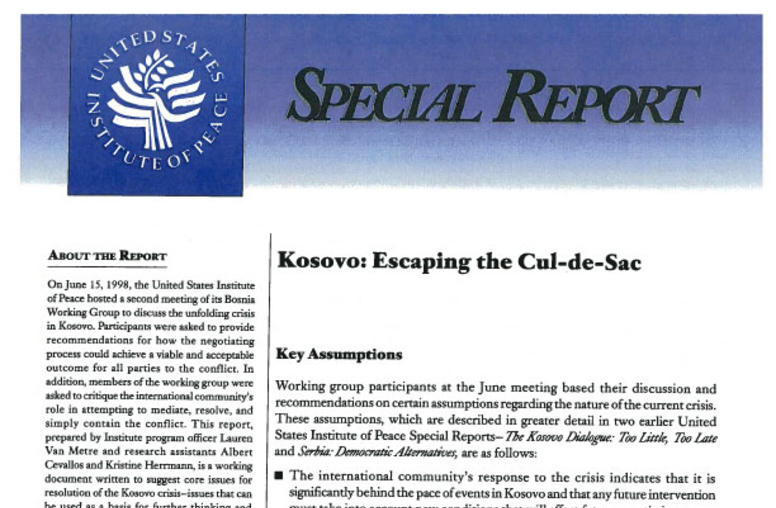
Kosovo: Escaping the Cul-de-Sac
The United States Institute of Peace hosted a second meeting of its Bosnia Working Group to discuss the unfolding crisis in Kosovo. Participants were asked to provide recommendations for how the negotiating process could achieve a viable and acceptable outcome for all parties to the conflict. In addition, members of the working group were asked to critique the international community's role in attempting to mediate, resolve, and simply contain the conflict.
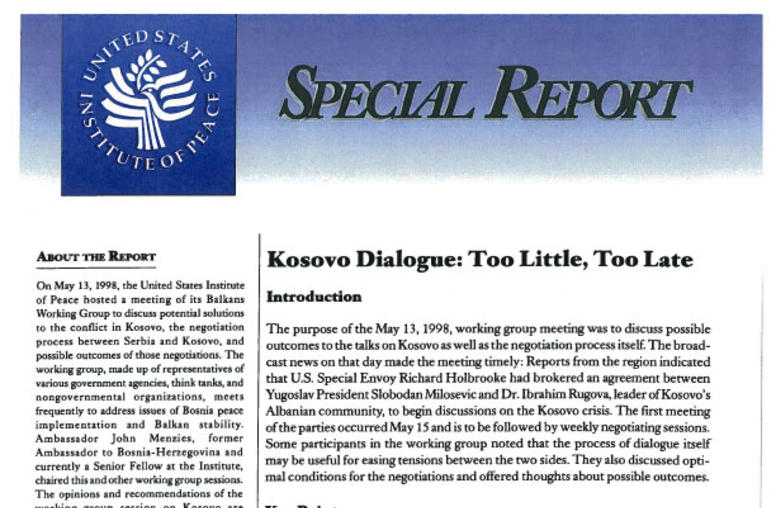
Kosovo Dialogue: Too Little, Too Late
The United States Institute of Peace hosted a meeting of its Balkans Working Group to discuss potential solutions to the conflict in Kosovo, the negotiation process between Serbia and Kosovo, and possible outcomes of those negotiations.
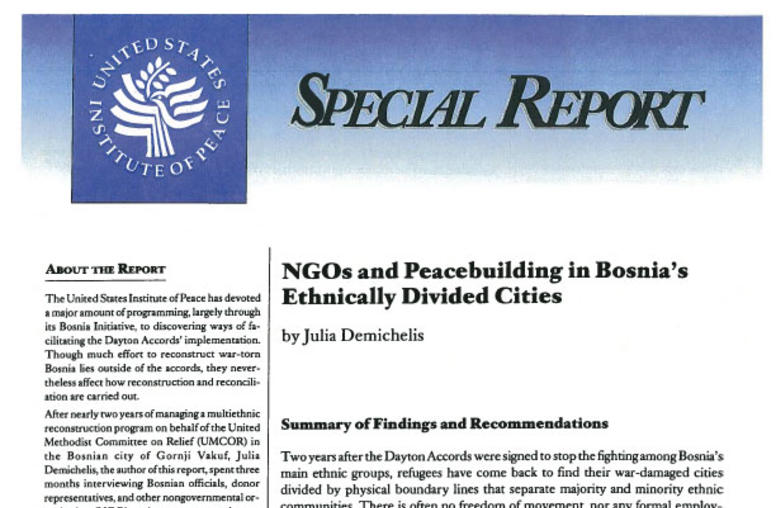
NGOs and Peacebuilding in Bosnia's Ethnically Divided Cities
This report begins with an overview of the political boundaries in many of Bosnia's municipalities that have prevented postconflict reconstruction and reconciliation. The next section describes effective and ineffective strategies among aid donors and humanitarian-relief NGOs operating in these locales, followed by a case study of successful grassroots programs in the city of Gornji Vakuf. The report concludes with recommendations for NGOs and donor organizations.
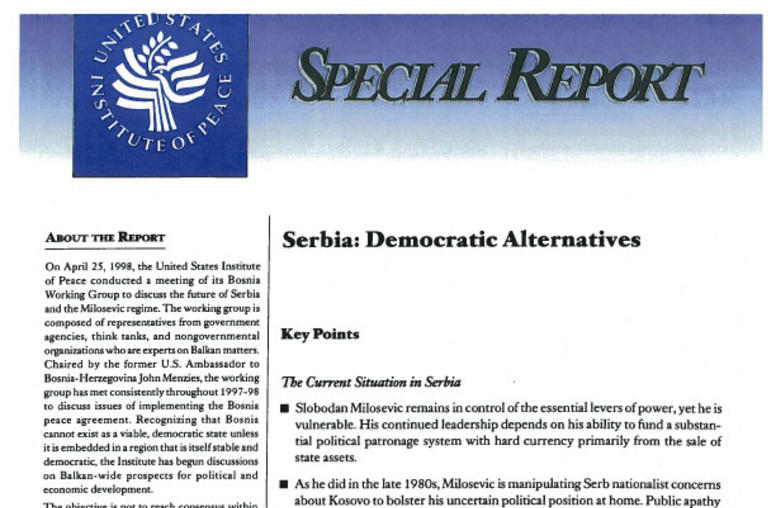
Serbia: Democratic Alternatives
On April 25, 1998, the United States Institute of Peace conducted a meeting of its Bosnia Working Group to discuss the future of Serbia and the Milosevic regime. The Institute's objective is not to reach consensus within the group, but to explore issues and options.
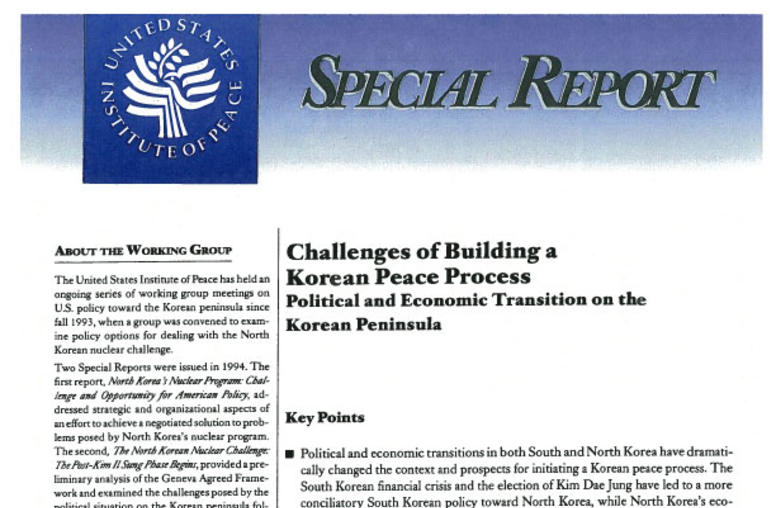
Challenges of Building a Korean Peace Process: Political and Economic Transition on the Korean Peninsula
This Special Report, authored by Program Officer Scott Snyder, is based on meetings of the working group that focused on political, economic, and security developments in North and South Korea.
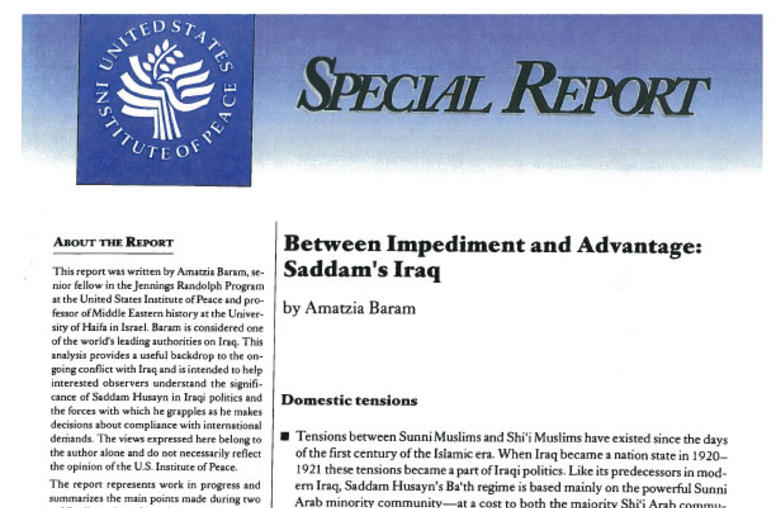
Between Impediment and Advantage: Saddam's Iraq
The report represents work in progress and summarizes the main points made during two public discussions about the nature of domestic politics in Iraq under Saddam. This analysis provides a useful backdrop to the ongoing conflict with Iraq and is intended to help interested observers understand the significance of Saddam Hussain in Iraqi politics and the forces with which he grapples as he makes decisions about compliance with international demands.
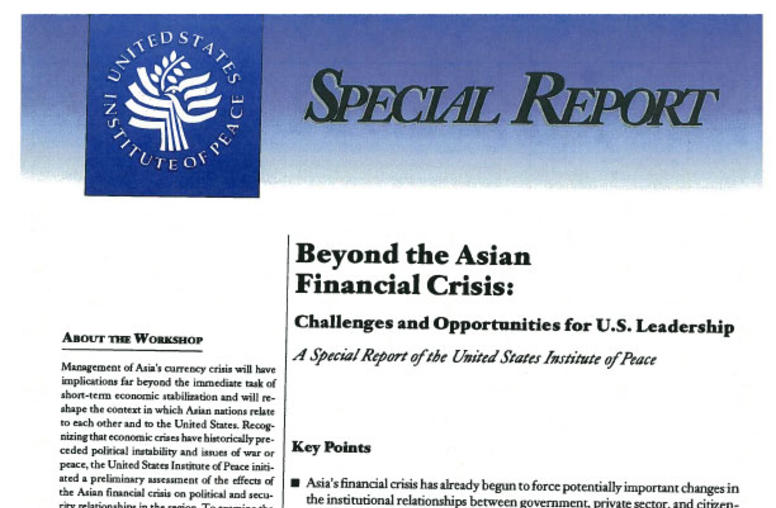
Beyond The Asian Financial Crisis: Challenges and Opportunities for U.S. Leadership
Following two decades of rapid growth, social change, and industrialization, the countries of the East Asian region are experiencing their first regionwide economic crisis. The immediate economic causes of Asia's financial crisis--especially unsustainable short-term foreign debt incurred by the private sector and exposed by the sudden devaluation of overvalued local currencies--have been identified. The challenges for U.S. leadership in response to the region's current financial crisis are to...
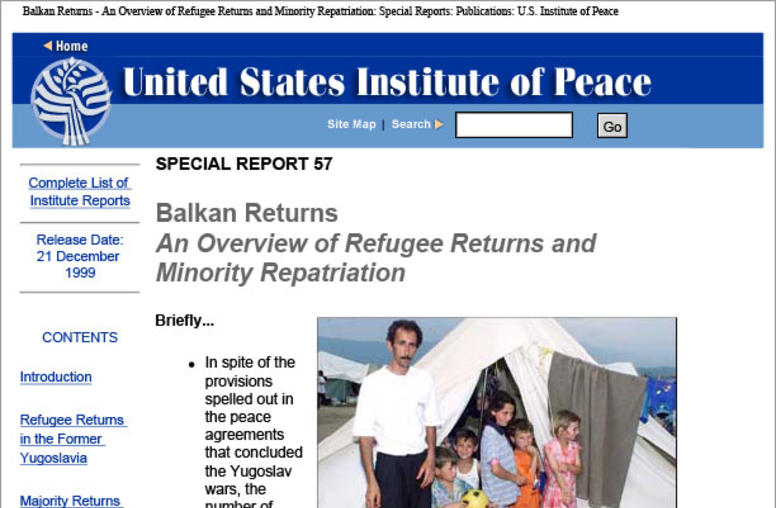
Balkan Returns: An Overview of Refugee Returns and Minority Repatriation
Summary In spite of the provisions spelled out in the peace agreements that concluded the Yugoslav wars, the number of minority returns throughout the former Yugoslavia is still low, indicating that there are considerable barriers to repatriation. The failure to draw refugees back to their towns and villages threatens the reconstruction of civic life, hinders the process of reconciliation and postpones the permanent conclusion of hostilities. The return of minorities is a regional m...
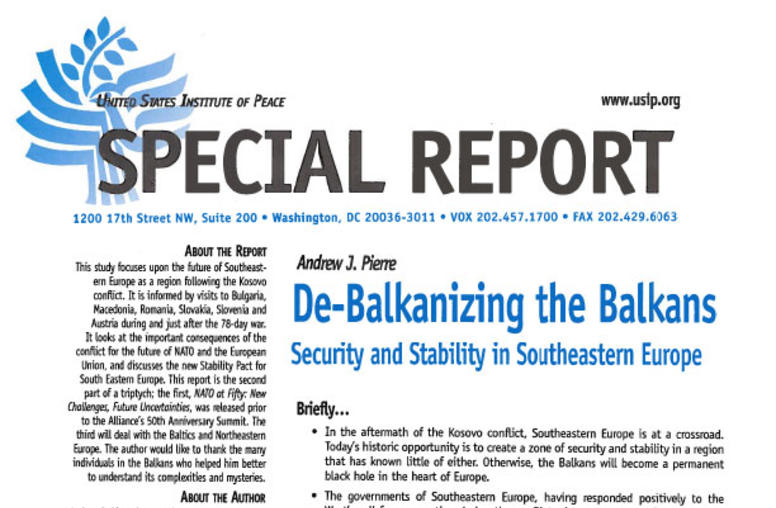
De-Balkanizing the Balkans: Security and Stability in Southeastern Europe
Summary In the aftermath of the Kosovo conflict, Southeastern Europe is at a crossroad. Today's historic opportunity is to create a zone of security and stability in a region that has known little of either. Otherwise, the Balkans will become a permanent black hole in the heart of Europe. The governments of Southeastern Europe, having responded positively to the West's call for cooperation during the conflict--in most cases against their own public opinion--and having incurred subst...
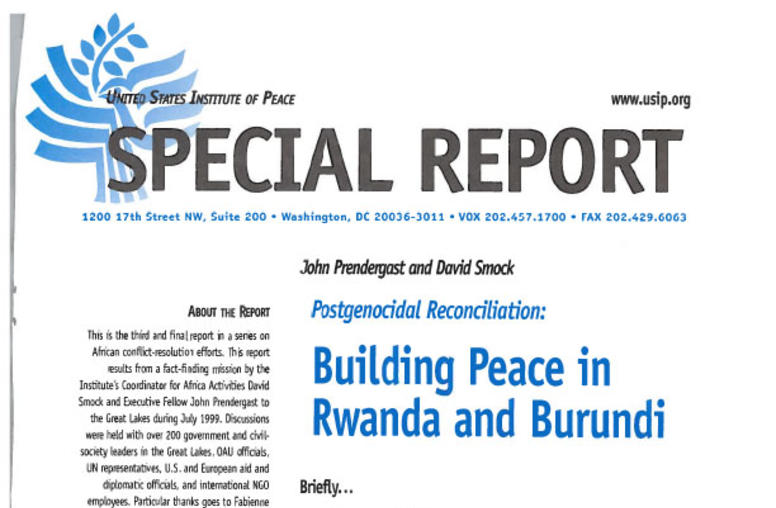
Post-Genocidal Reconciliation: Building Peace in Rwanda and Burundi
Summary Future security in both Rwanda and Burundi is closely linked to how successfully the Lusaka cease-fire agreement lays a foundation for peace in the Democratic Republic of the Congo (DRC). An effective, internationally supported disarmament and demobilization program for the Rwandan and Burundian rebel forces based in the Congo could significantly enhance security in the entire region. International support could come in part through the creation both of a Friends of Peace ...